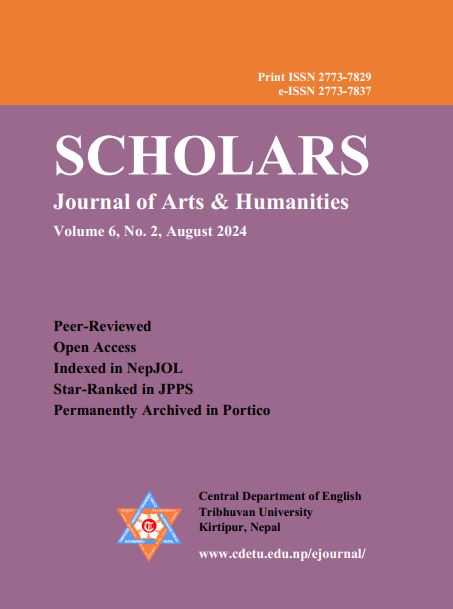Lahure as a Transnational Subject in Daulat Bikram Bista’s Chapaiyeka Anuhar
DOI:
https://doi.org/10.3126/sjah.v6i2.68737Keywords:
Lahure, transnational subject, transnational mobility, transnational identityAbstract
This paper investigates Lahure as a transnational subject in Daulat Bikram Bista’s Chapaieka Anuhar (Chewed Faces) that portrays a Gorkha soldier’s mobility across national boundaries. The novel is about a Nepali youth’s narrative of his experiences during the Second World War, portraying the psychology of a lahure through his mental conflict between the ‘local’ and ‘global’. In particular, the novel revolves around the protagonist Ananta’s perceptions unfolding the Nepalis’ interactions with geographical, political, cultural, social, and economic realities abroad. The protagonist’s unprecedented encounter with strangers unravels his perception, assessment, and analogy between Nepal and Germany in particular and Asia and Europe in general. This paper, therefore, concludes that lahure is a transnational subject who sticks to his local identities on the one hand and blurs the traditional notions of identity and belonging on the other.
Downloads
Downloads
Published
How to Cite
Issue
Section
License

This work is licensed under a Creative Commons Attribution 4.0 International License.
© Central Department of English, Tribhuvan University and Authors




